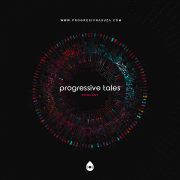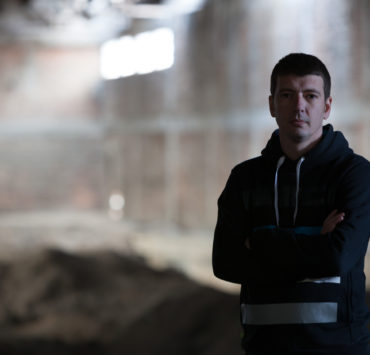Gizmo, or Dzemil Huseinović, is, first of all, a passionate music lover and a collector, a DJ and a member of the Progressive Tear. He has made a huge impact on the group’s development in terms of education and interpersonal relationships. We also remember some of his streams from his living room we could watch on You Tube channel during the state of emergency.
He is considered to be one of the most experienced and musically “well-read” people with whom you can discuss different music genres, its progress, sociological issues, the development of technique, and the history of the music scene. The talk we have had is divided into three thematic units, the first of which you can read below.
Can you tell us something about the period when Lifka was the center of clubbing in Serbia? How different is that period from the present?
I came to Subotica in 1998 when I enrolled at the Faculty of Economics. That is when I actually got to know Lifka, directly and at first hand. I had already heard that there was a club named Lifka with the best sound system, interior etc. I was a part of the audience that followed the electronic music scene at that time. The first time I entered Lifka was for a concert actually, Leb i Sol (my favourite band), and it was the first event I attended in Lifka. It was in October 1998.
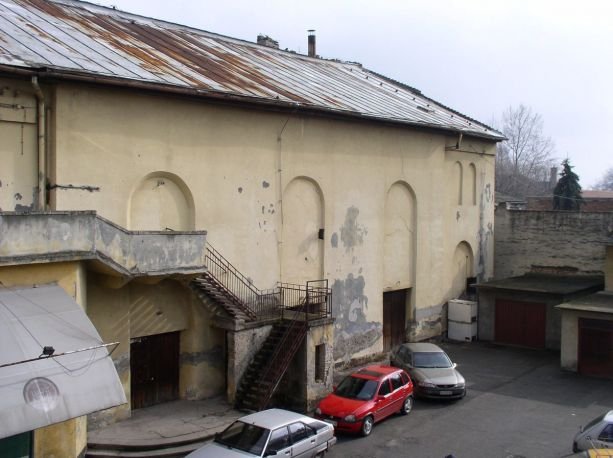
As soon I as entered this venue, it became clear to me that Lifka was talked about rightfully. Original, purpose-designed, JBL SRX Sound System, made in USA, intelligent lighting (robo moving head lights and scanners) designed on a steel structure which descends from the ceiling, the best DJ desk, large dance floor, three-level space, bars, seats, a place that accommodates 2,000 people… Lifka was really top notch, in every sense. And Lifka won my heart. Of course, right after that concert, the next weekend came, and we went to a party.
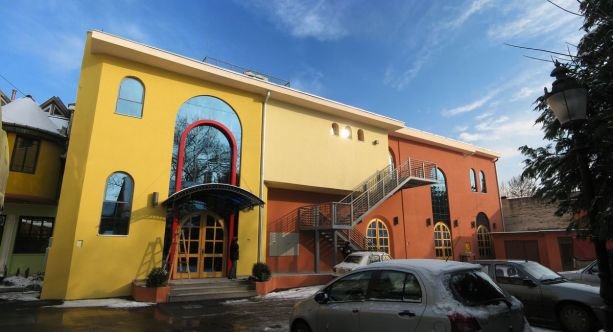
But the story about Lifka cannot be told separately from the Subotica scene. Subotica has always had a serious and quality music scene. It is a very urban environment with people who exude it. Belgrade is something different. It was completely natural for a two-million city to have lots of good DJs, established names, different electronic music genres, lots of clubs and other places for clubbing. I do not know of any city, 20 times smaller than Belgrade, with so many clubs, a few organizations, lots of DJs, great DJs and the audience of a few thousand people, apart from Subotica. In this respect, Lifka represented the Subotica scene at that time in the best possible way. Lifka, as a phenomenon, is a paradigm of that period. There were a few parties every weekend, gathering a few thousand people. There were many organizations and DJs in Subotica in all music genres. There were DJs playing techno, house, drum’n’bass. There were all the genres.
Progressive appeared first in Subotica, and then spread further. This proximity and connection with Hungary was in a certain way a connection with the world; it was beneficial and it made huge impact. But apart from being equipped with the best equipment, from being an amazing venue, Lifka is not a cult place that will be remembered as a place where many parties were held. Lifka is a cult place because of people in the first place. Starting from the owner and a legend, Pista, the club staff, organizers and organizations, DJs, visitors and others. All those people were enthusiasts, creative people, who gave their best to bring the spirit of the world to Serbia through music.
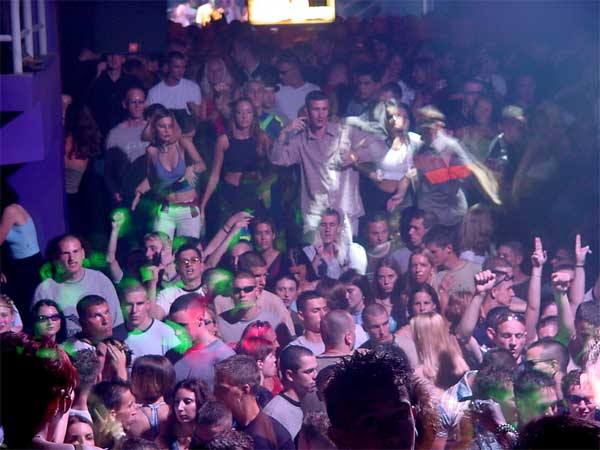
Being a part of the electronic scene was an escape from all the bad things going on here: trash music, trash culture, primitivism, lies, hypocrisy. It was a resistance against the system, a reflection of urban, unburdened, free-minded culture, internationalism and a desire to be a part of the world.
More people were engaged in the scene than today, and more people identified themselves with these values than today. There were more participants on the scene than today. Parties organized by local people were attended by 500 to 1,000 people. Regularly. Every weekend. It lasted for as much as it could, but it looked like that. In that sense, the electronic music scene was very active. I am talking about the period from 1998 to 2007/08. Of all the people and organizations on the Subotica scene, people gathered around Play 4 Underground, Guntar, late Miguelle, Srdjan Blizzard, Mad Matt, Natasha, Timika and Kreedu ( I wouldn’t want to miss anyone accidentally) drew my attention. This group of people played house music, mostly British-oriented house. I liked a lot what they did. There were innovative on the house scene in Serbia. This was a period before progressive came here. The same group of people brought progressive to Serbia and created the new scene. It was in 2000/01. They started bringing vinyl records and playing them in their sets, and there was a turn towards progressive. This music won people’s hearts.
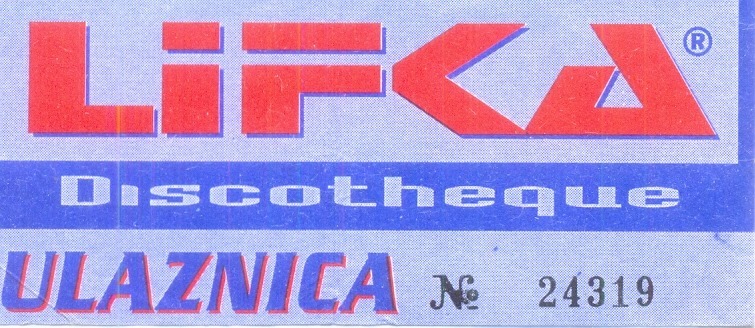
This group of people also got credits for making Lifka being visited by globally renowned names. With all due respect to all these people, I have to single out late Miguelle. I remember him as one of the elite creative men of his time. The music he selected was in a personally refined way a novelty for everyone. I remember him as a man who, above all, nurtured an incredible musical taste. He was always powerful and strong, and yet very emotional, and always somehow new. He had some crazy energy on stage, like a messiah. He had a personal charisma. He was a very good DJ. Very good. Amazing sets! By some inexplicable game of fate, it happened that the scene in Subotica began to crumble with his tragic departure. His tragic departure was a huge loss for the scene in general. Only two or three years after that, nothing was the same. There were no more people, no more organizations, no more parties. Something happened. And then Lifka ceased to exist. It was in 2008. The beauty of everything is that Subotica and the people of Subotica have preserved the memory of late Miguelle. The memory of him largely represents the memory of the electronic music scene in Subotica at that time.
Many globally famous names of the electronics scene played in Lifka (Dave Clarke, Rush, Ian Ossia, Anthony Pappa, Danny Howells, Oliver MacGregor, Advent, Gideon Jackson, Chris Liebing, Quivver, Gayle San, Nick Warren). Some of the most legendary parties ever in this area took place in Lifka. Anthony Pappa, Danny Howells, Nick Warren. Lifka is a hallmark of the time when we were really part of the world scene, a symbol of everything good that characterizes the scene of that time.
If we cared about the cultural heritage, Lifka would have to be proclaimed a place of great importance for the culture, at a local and national level.
With all due respect for the Lifka Art Cinema, which is now located on the site of the legendary disco, as much as Subotica and its people need the Lifka Art Cinema, they also need the Lifka disco. Taking into account everything that happened there, Lifka should be something that every citizen of Subotica should be proud of.
I would love other people to get engaged in this. There are many people who have more information than me to talk about this.
As a conclusion, a memory of Lifka, for me personally, is a memory of the best part of my life.
How did people provide music during the 90’?
In order to talk about it, first we need to make a review of that time. I became interested in electronic music at the end of 1994. I was 15 then. Quite by accident, one afternoon, I heard Out of Space by the Prodigy on a small white radio in our living room. I am not exaggerating when I say that this is something that greatly influenced and shaped my musical taste, and determined my future direction in terms of music. I had never heard anything like this before. And it totally changed me. Then I said to myself: this is the music I want to listen to. That’s it. That’s all I want. I didn’t know then that the band was called The Prodigy, or that the name of the song was Out of Space, nothing. I was literally hypnotized. And then I started looking for “that” and “such” music.
Now, recapitulation: it’s 1994, I am 15 years old, I am in the first grade in Gymnasium. A child from a suburb. I play the guitar in a quite popular high school rock band. The Internet does not exist in our small town (I think that EUNET was the first Internet provider in Serbia, and that it started operating that year). Music can be found on audio tapes, records and compact discs. Digital music does not exist. Sources of information almost do not exist. Wars. Sanctions. Poverty. No travel. In these circumstances, I start looking for music. A rare fortunate circumstance at that time for me was that, the VJ Techno show, edited and hosted by Dusan Kalicanin, began to be broadcast on the Third Channel of the Serbian Radio and Television. It was broadcast once a week at 7.30 p.m. I can’t remember exactly. In this total darkness, that show, VJ Techno, was for us, the children of the suburb, the only available source of information about electronic music and the scene. Music videos were broadcast in this show, new releases were discussed, music and videos from parties were played, events were announced and so on. I was lucky back then that my father bought me a satellite dish in ’96, so in addition to VJ Techno, I could also watch shows about electronic music broadcast by music TV stations, such as Viva, MTV, MCM… That’s how I collected information about music and the scene in general.
The so-called music recording studios were very popular at that time. These were run by people who had and collected music, recorded it on 60 and 90-minute audio tapes and sold them. When I heard some stuff on VJ Techno, I would make a 90-minute compilation list, dial phone numbers of all the possible audio studios in the state, until I find one that has the stuff I wanted. I knew by heart all the phone numbers of every important audio studio in Serbia. The problem with these audio studios was that they were mostly oriented to popular music in general, and that there was no studio that procured and recorded only electronic music. From the list you would give it, a studio would have two or three songs, some other would have maybe five or six. When I finally found everything I wanted, I would order a tape, and wait for the postman.
At that time, those tapes cost from 10 to 20 Deutsche Marks. I collected my pocket money and money I received for a meal at school. I literally didn’t eat in order to buy tapes.
I remember Happy House from Nis from that period. They almost always had a large majority or everything I was interested in. And they had good equipment, so the tapes I ordered from them were very good and were well recorded. Later on, from ’97 onwards, CDs began to be burned en masse. Then the tapes slowly began to lose their significance. So, this is how it looked like in the beginning. When I established and strengthened the supply chain, I decided to start procuring records and discs. A CD was a completely new technology at the time. A new sound carrier, digital recording, perfect sound. At the time of sanctions, the so-called “Bulgarian” discs were predominant on our market.
These were quite good-quality copies of the original CD releases, which were sold for 5 to 10 Deutsche marks. The problem with the “Bulgarians” was similar to the problem with the audio studios. They produced a lot of everything, and the least of what I was interested in. Only albums could be found there. But, again, that was the mainstream. On Bulgarian discs you could find Prodigy – Music for the Jilted Generation, Chrystal Method – Vegas and what was popular and produced in large circulations, but you couldn’t find, I don’t know, Green Velvet, or some other underground stuff. You buy a compilation because of one song, which is mostly there by accident. So, the Bulgarians could not fully cover the whole spectrum of my music taste.
The music I was interested in was on the original CDs and records. The price of original CDs was 20 to 40 Deutsche Marks. I bought my first original CD in the Music Hole store, which was located in the City Passage shopping center on Obilićev venac in Belgrade in 1996. It was a compilation of Trance Europe Express 3. Dual Disc. A CD Booklet with 150 pages. It was a completely different dimension. That was what I wanted. I would give everything I had for music. Paying 30 or 40 Deutsche Marks for a CD at that time was not a small thing. That was, roughly, the monthly pocket money I received from my parents.
So, I don’t eat at school the whole month, I don’t spend money on anything, so I could buy one CD.
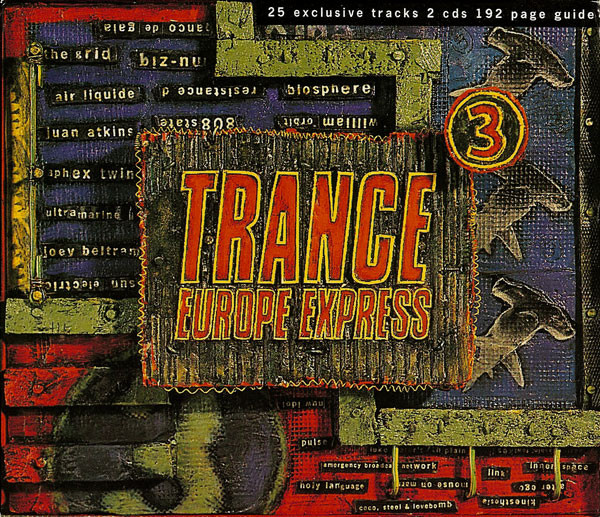
I found a way to make money then. During the holidays, I worked as a waiter, and during the school terms, I made and sold programs. I knew everything about computers at the time, and I spent everything, but literally everything, on music. Music Hole was a great store. Everything I wanted to buy could be found there, but it was a very expensive store. I always left the store without having enough money to buy everything I wanted. Besides this shop, I also used to buy music in Belgrade in the HMK Music shop, which was located in Palmoticeva Street, behind the Assembly building. It was also a very good store. Unlike Music Hole, they were much more affordable, because they represented certain record labels. The releases of Mute, Novamuta and many others could be found here for around 20 DM.
There was also the legendary Mungos CD shop in Novi Sad. At that time, in 1996/97, I did not go there, because Novi Sad was quite far from me. I would often visit that shop later, after I had moved to Subotica, but I had heard about it. I didn’t have a turntable or a CD player then. It was important to me to have music, and the question of purchasing equipment was a question of money. When I collected money, I would buy a CD player, or a turntable, or whatever. And if I didn’t buy something at some point, later it was hard to find it. When I got my first CD player, which was actually a diskman, I had over 100 discs.
When we talk about how we used to get new music, I have to thank my parents. They survived all that, they watched it, suffered, paid for all my mischiefs, tried to understand and justify every tape, every disc, every record that the postman and I would bring home. In a financially very challenging period, they would add money If I needed it to buy a record or a disc. There is only one thing behind everything I said: love for music. Endless and immeasurable.
You are a big fan and collector of vinyl records. What emotion can you convey to us regarding this story?
Ah, vinyl records… falling in love with that magical 12-inch-diameter cast piece of plastic began when I first saw a DJ spinning records. It was Laurent Garnier, on the MCM music channel. I got my first record in 1995. It was Lucid – Gonna Party. I got it abroad, with great difficulty. I got it with the help of a friend who had a friend who knew a man who had heard where the records store was.
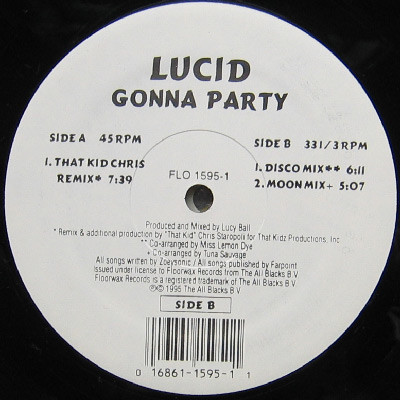
More than anything in my life, I wanted to be a DJ and make it my life’s occupation. I have never had such a strong desire in my heart for anything else. But, it didn’t happen. I didn’t become a DJ. Life had another path for me. My path. But I have never given up collecting music. Nor have I intended to. The fascination with vinyl records is inexplicable for me. I have mentioned that I spent all the money on records and discs. It is the same now. When I look for records, I have to admit I’m a little insane. For example, if I have a surplus of some 20-30 Euros and I have something to spend them on, I buy records instead! When it’s all over, when I click all the buttons, add to cart, buy now and pay, etc., I start wondering what I have done. And it’s always the same.
I may not be able to explain it the best, but vinyl records definitely carry an emotion that no other sound carrier has. Let me be clear, I also like CDs, but I prefer vinyl records. I’m not one of those who claim that a record has the best sound, and then compare it to the sound quality of a CD and so on… I think that’s nonsense. CD is the ultimate digital audio format of the highest quality. It’s just about personal affinity. I know a lot of collectors who collect music exclusively on CD. Collecting is primarily love and passion for music.
It is a special feeling when you know you have something on the vinyl record, and when you know you have it on your computer. For each vinyl, for each cover, you know exactly where it stands, what condition it is in, how you got it, etc. Somehow, you care more about these things. In my opinion, music should be on sound carriers. The world music heritage is on the sound carriers. As a collector, I am driven by the desire to collect music that is within the domain of my interests. I try, as much as I can, to collect all the most important releases in electronic music, mostly progressive ones. Albums, compilations, singles, everything that is important in music, both old and new. In this respect, there is everything in my small collection. Collectors thus preserve music, and pass it on to future generations. They take good care of their records and CDs.
What are your impressions now that you have gotten closer to the Progresivna Suza team?
Progresivna Suza is a group of great people who share the same love and passion, and that is progressive. The idea of making a group like this is something I liked the moment I found out about it. A place that brings together people who share the same interests, a place where music is shared, where the information from the world of progressive circulates, where people meet, hang out, exchange ideas and thoughts is something I really like, and where I find myself at different levels.
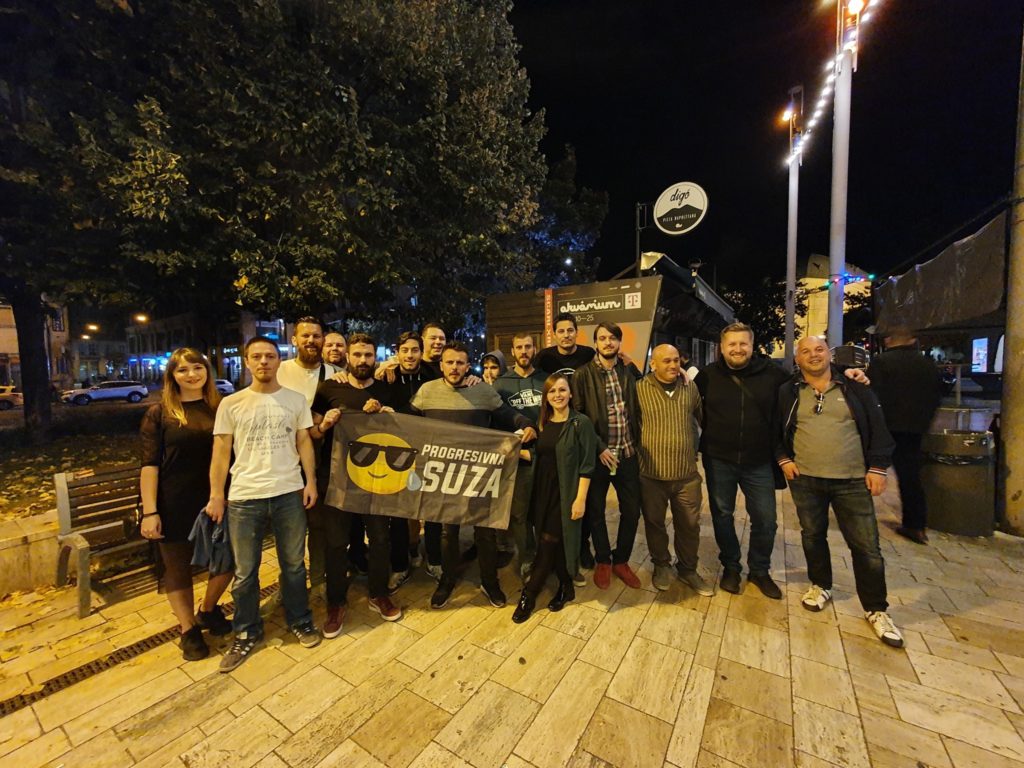
What I like especially is that this is a group that gathers different people: old, older, young, younger, DJs, producers, experienced, inexperienced, people from different parts of the country and so on. They all equally share the same love and passion for music. I think that’s fantastic. Attending the parties since the group has existed, I have met many wonderful people. The team is really great. I see again the people I met before, at parties and in the Facebook group. I know that the group’s activity greatly influenced older people from the team to return to music again, to say so. The energy that they share is amazing. I can rightfully and without any exaggeration or false modesty say that everything that the Progressive Tear does has made progressive live and active in this part of the country. People who run it invest so much effort, I think it pays off in the end.
John Digweed b2b Sasha, one word?
Something else.
Nick Warren b2b Hernan Cattaneo?
Progressive.


